The door on the opposite side of the room was suddenly opened, and Hamar Lessingham and Helen entered together. Lessingham was entirely at his ease, - their conversation, indeed, seemed almost engrossing. He came at once across the room on realising Sir Henry's presence.
"This is Mr. Hamar Lessingham - my husband," Philippa said. "Mr.
Lessingham was at college with Dick, Henry, so of course Helen and he have been indulging in all sorts of reminiscences."
The two men shook hands.
"I found time also to examine your Leech prints," Lessingham remarked.
"You have some very admirable examples."
"Quite a hobby of mine in my younger days," Sir Henry admitted.
"One or two of them are very good, I believe. Are you staying in these parts long, Mr. Lessingham?"
"Perhaps for a week or two," was the somewhat indifferent reply.
"I am told that this is the most wonderful air in the world, so I have come down here to pull up again after a slight illness."
"A dreary spot just now," Sir Henry observed, "but the air's all right. Are you a sea-fisherman, by any chance, Mr. Lessingham?"
"I have done a little of it," the visitor confessed. Sir Henry's face lit up. He drew from his pocket a small, brown paper parcel.
"I don't mind telling you," he confided as he cut the string, "that I don't think there's another sport like it in the world. I have tried most of them, too. When I was a boy I was all for shooting, perhaps because I could never get enough. Then I had a season or two at Melton, though I was never much of a horseman. But for real, unadulterated excitement, for sport that licks everything else into a cocked hat, give me a strong sea rod, a couple of traces, just enough sea to keep on the bottom all the time, and the codling biting. Look here, did you ever see a mackerel spinner like that?" he added, drawing one out of the parcel which he had untied. "Look at it, all of you."
Lessingham took it gingerly in his fingers. Philippa, a little ostentatiously, turned her back upon the two men and took up a newspaper.
"Lady Cranston does not sympathize with my interest in any sort of sport just now," Sir Henry explained good-humouredly. "All the same I argue that one must keep one's mind occupied somehow or other."
"Quite right, Dad!" Nora agreed. "We must carry on, as the Colonel says. All the same, I did hope you'd come down in a new naval uniform, with lots of gold braid on your sleeve. I think they might have made you an admiral, Daddy, you'd look so nice on the bridge."
"I am afraid," her father replied, with his eyes glued upon the spinner which Lessingham was holding, "that that is a consideration which didn't seem to weigh with them much. Look at the glitter of it," he went on, taking up another of the spinners. "You see, it's got a double swivel, and they guarantee six hundred revolutions a minute."
"I must plead ignorance," Lessingham regretted, "of everything connected with mackerel spinning."
"It's fine sport for a change," Sir Henry declared. "The only thing is that if you strike a shoal one gets tired of hauling the beggars in. By-the-by, has Jimmy been up for me, Philippa? Have you heard whether there are any mackerel in?"
Philippa raised her eyebrows.
"Mackerel!" she repeated sarcastically.
"Have you any objection to the fish, dear?" Sir Henry enquired blandly.
Philippa made no reply. Her husband frowned and turned towards Lessingham.
"You see," he complained a little irritably, "my wife doesn't approve of my taking an interest even in fishing while the war's on, but, hang it all, what are you to do when you reach my age? Thinks I ought to be a special constable, don't you, Philippa?"
"Need we discuss this before Mr. Lessingham?" she asked, without looking up from her paper.
Lessingham promptly prepared to take his departure.















